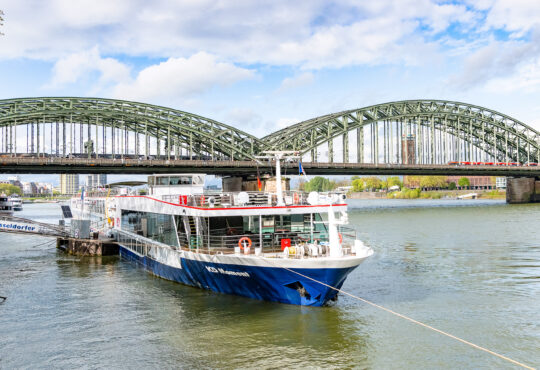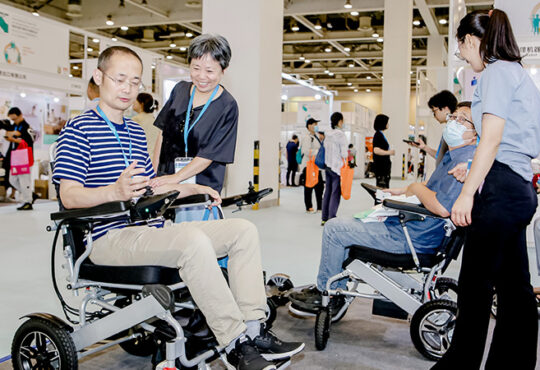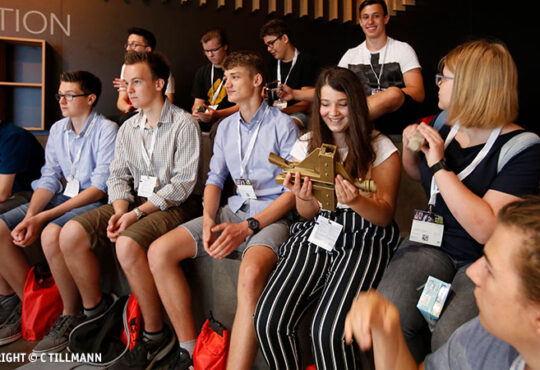Encounters at REHACARE 2022 – Interview with inclusion activist and author Raúl Krauthausen
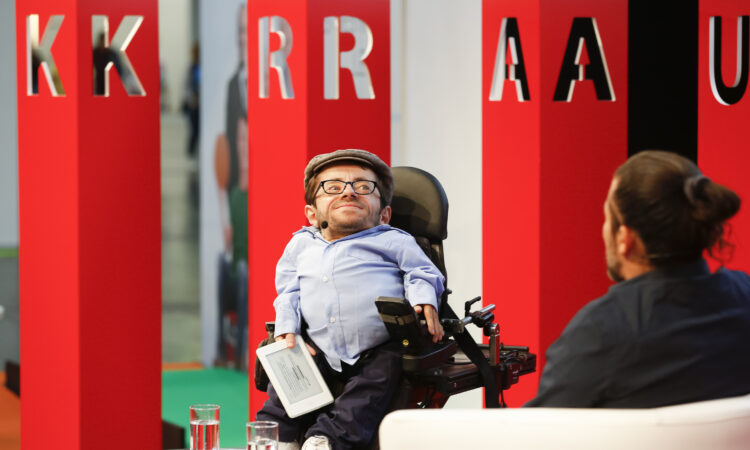
After three years without REHACARE, the international trade fair for rehabilitation and care is returning to Düsseldorf as a face-to-face event. Before the start of the trade fair, we spoke with Bundesverdienstkreuz holder Raúl Krauthausen in an exclusive interview about inclusion and accessibility and the importance of REHACARE for inclusion in Germany.
Finally, face-to-face events can take place again! Trade fair people agree that networking is a USP of live events. And especially when it comes to rehabilitation and care for people with disabilities or chronic illnesses, direct exchange is all the more essential. So it’s not surprising that the anticipation of the first REHACARE in three years is high among everyone involved. From September 14 to 17, 2022, the world’s largest trade fair for rehabilitation and care will return to the halls of Messe Düsseldorf with all its important companies in the industry.
“Germany is in the lower midfield in terms of inclusion compared to the rest of Europe”
People who need support from other people or technologies have very individual and specific requirements. Thus they need personal advice and the opportunity to have products and services tailored to their individual needs. REHACARE enables those affected and their relatives to test offers and innovations directly on site. Here too, for example, digitalization has provided new technologies and methods that can be experienced at the trade fair. Whether at the exhibitors’ stands themselves or in the expert forums, the focus is always on encounters between people from the industry and those with disabilities.
Encounters are also the topic that Raúl Krauthausen will address in his lecture on September 16 at 1:00 p.m. on the PRODUCTS & NEWS@REHACARE stage in Hall 4. In his opinion, the situation for people with disabilities in Germany has deteriorated and encounters could help to reverse this development. In the following interview, he therefore explains why we should always meet people with disabilities at eye level.
Editorial team: You are committed to the issues of inclusion and accessibility. What would Germany be like in this respect if you had to give grades?
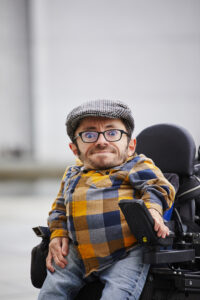
If I had to answer outright, I would have to say that Germany is in the lower midfield in terms of inclusion compared to the rest of Europe. Scandinavian countries like Sweden in particular are at least ten years ahead of us. There, all floors of new buildings have to be barrier-free for example. But Germans don’t like to hear that they are not on the way to becoming world champions in some field.
Where are the biggest problems, and what needs to be changed urgently?
RK: The private sector and companies as a whole must be obliged to be barrier-free. We can’t keep leaving the field to people without disabilities there – something has to change fundamentally. I no longer like to applaud individual actions just because, for example, some rural train station got an elevator. Something like that should be a matter of course.
REHACARE enables encounters
Are there any permanent hot topics or do things change in your experience – for the better or for the worse?
RK: Well, that’s another one of those issues – Germans want to stand up well in international comparisons and want to hear positive examples. But in my view, we tend to go backwards in this country, for example when you look at education. In the 1980s, when I went to school, I took diversity in the classroom for granted – for example, there was the fidgety child, the quiet one… Today, these children are increasingly being diagnosed with ADHD (Attention Deficit Hyperactivity Disorder, editor’s note). And the teachers retreat to the fact that they don’t know anything about it because they haven’t been trained for it. Then the children are put into special schools.
My point is that there doesn’t have to be a specialist behind every student with a disability. The parents have not been trained to deal with their children either. From my point of view, common education is a basic right that does not have to be discussed all the time.
From your point of view, what role does REHACARE play on the way to more accessibility within society?
RK: For me, REHACARE can be compared to an International Automobile Show, where the news regarding technology and aids are presented and discussed. However, I would wish that the people who are to use innovations were more involved in their development. Not every new generation of wheelchairs is automatically better, in my experience. I think it’s because manufacturers are more in touch with medical supply stores than with customers.
Also, people with disabilities don’t ultimately want the latest edition of a wheelchair to climb stairs – they want there to be no more stairs. The barrier-free environment, that’s a social issue.
What are your expectations for REHACARE 2022?
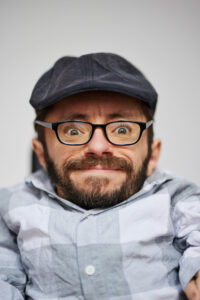
So that’s why you chose the topic of “encounters” for your talk?
RK: Exactly. Because I think that the only way to take away others’ fears or insecurities about people with disabilities is through encounters with them – not through theories or education through posters. The moment people with disabilities sit in ice cream parlors or school classes as a matter of course and meet others, we would be a giant step forward in terms of inclusion.
We thank you for the exciting interview and are very much looking forward to Raúl Krauthausen’s presentation at REHACARE 2022. What are you most looking forward to? Will you be there at all? If not, you should definitely get your tickets here!
You can read the full (German) interview on the REHACARE website.




